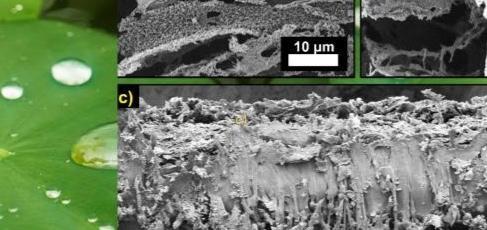
The Future of Sustainable Water Solutions: IIT Bombay’s DSLIG Evaporator Emerges as a Promising Tool for Addressing the Global Freshwater Crisis
The world is facing an unprecedented crisis – a shortage of freshwater. According to the United Nations, by 2025, half of the world’s population will live in water-stressed areas. The consequences of this crisis are dire, from food and energy security to human health and economic stability. As the global population continues to rise, the pressure on our freshwater resources will only intensify. However, researchers at IIT Bombay have made a breakthrough that could change the game – the DSLIG Evaporator, a sustainable water solution that’s making waves in the world of desalination.
The Problem with Traditional Desalination Methods
Desalination, the process of removing salt and other minerals from seawater to produce freshwater, is a critical component of addressing the global freshwater crisis. However, traditional desalination methods are energy-intensive, costly, and environmentally harmful. Reverse osmosis, one of the most common methods, requires large amounts of energy to push seawater through semi-permeable membranes, resulting in significant greenhouse gas emissions. Additionally, the high cost of desalination makes it inaccessible to many communities that need it most.
The DSLIG Evaporator: A Game-Changer in Sustainable Desalination
Enter the DSLIG Evaporator, a revolutionary new technology developed by researchers at IIT Bombay. This innovative device uses a combination of dual heating capabilities and superhydrophobic properties to efficiently remove salt and other minerals from seawater, producing freshwater at a fraction of the cost and energy requirements of traditional methods.
How Does it Work?
The DSLIG Evaporator works by using a unique combination of thermal and solar energy to evaporate seawater. The device consists of a series of tubes coated with a superhydrophobic material, which prevents water from spreading and reduces the surface area available for evaporation. The tubes are then heated using a combination of solar energy and a secondary heating source, such as a heat pump or a waste heat recovery system.
The dual heating capabilities allow the DSLIG Evaporator to function optimally under varying conditions, making it a versatile solution for a wide range of applications. The device can be used to treat brackish water, seawater, and even wastewater, making it an attractive solution for communities struggling to access clean drinking water.
The Benefits of the DSLIG Evaporator
The DSLIG Evaporator offers several benefits over traditional desalination methods. It:
- Uses renewable energy sources, reducing greenhouse gas emissions and operating costs
- Is more efficient, producing freshwater at a lower cost per liter
- Can be used to treat a wide range of water sources, including brackish water and wastewater
- Has a smaller footprint, making it ideal for small-scale applications
Ongoing Research and Development
While the DSLIG Evaporator is a promising solution for sustainable desalination, further research is needed to validate its industrial readiness and accelerate the deployment of large-scale applications. Researchers at IIT Bombay are working to optimize the device’s design and performance, as well as developing new materials and technologies to improve its efficiency and effectiveness.
The Future of Sustainable Water Solutions
The DSLIG Evaporator is just one example of the innovative solutions being developed to address the global freshwater crisis. As researchers and policymakers continue to work together to develop sustainable water solutions, we can expect to see a range of new technologies and strategies emerge.
From advanced water treatment technologies to innovative agricultural practices, the future of sustainable water solutions is bright. The DSLIG Evaporator is a promising tool in this arsenal, offering a cost-effective and efficient solution for addressing the global freshwater crisis. As we move forward, it’s crucial that we continue to invest in research and development, as well as promote the adoption of sustainable water solutions, to ensure a water-secure future for generations to come.
Source:
- “Lotus-leaf solar evaporators for saltwater treatment” – Research Matters. https://researchmatters.in/news/lotus-leaf-solar-evaporators-saltwater-treatment






